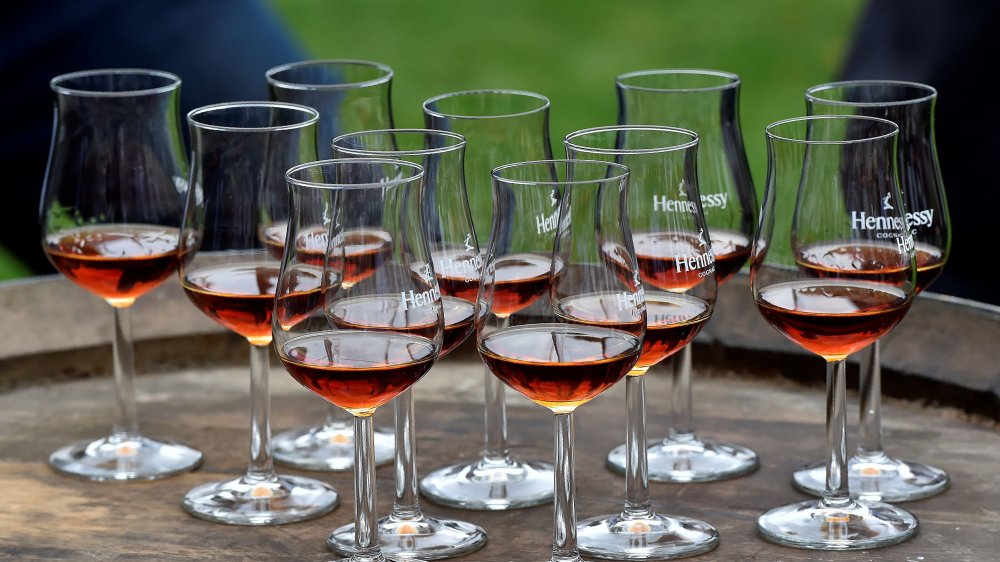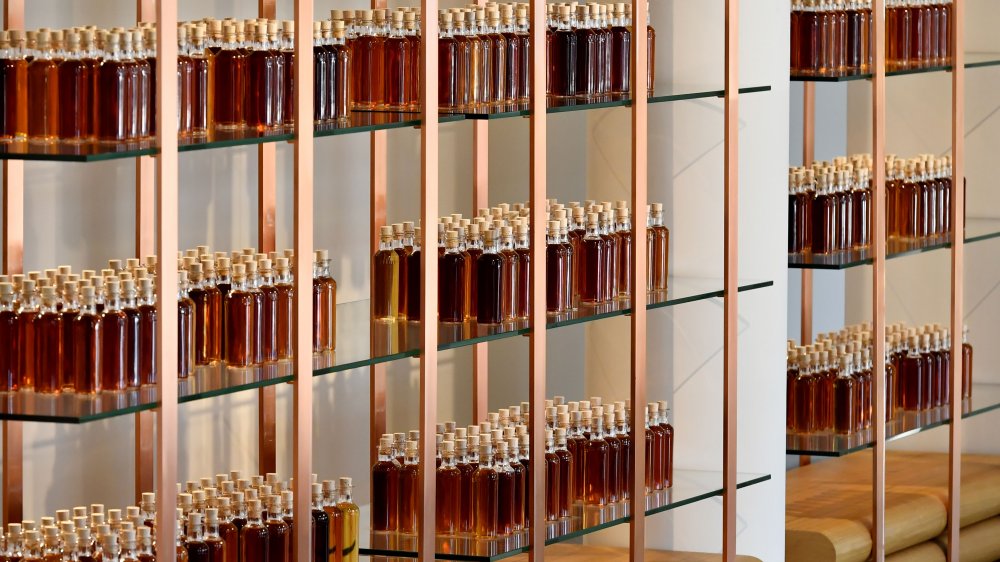When You Drink Cognac Every Day, This Is What Happens To Your Body
While there are those of us who might confuse brandy with cognac and vice versa, that confusion is completely understandable. "Cognac is to brandy what Champagne is to sparkling wine... [it is] made in a specific region of France following specific rules to guarantee its quality," Alexandre Gabriel of Pierre Ferrand Cognac says (via Eater).
Like Champagne, cognac is named for a specific region located in western France where brandy is made with a specific type of grape, using certain copper stills and aged in French Limousin oak barrels. There are four types of cognac: V.S. (Very Special, or at least two years old); V.S.O.P. (Very Special Old Pale, or at least four years old); X.O. (Extra Old, or "Napoleon," or at least 10 years old) and Hors d' Age, which indicates a premium brandy that is older than 10 years.
Cognac has antioxidants
Where there are known benefits and drawbacks to the consumption of alcohol, science supports the moderate consumption (this means one drink per day for women, which would be 12 ounces of beer, 5 ounces of wine, or 1 1/2 ounces of spirits or hard liquor) of alcoholic beverages like cognac, because research shows drinking of this type appears to be good for the heart and circulatory system. There is also probable cause to show that it can also protect a drinker against type 2 diabetes and gallstones too (via Harvard).
LiveStrong says cognac has the added benefit of having antioxidants like ellagic acid, which can act as an inflammatory, and helps in the battle against diseases arising from metabolic problems from insulin resistance, type 2 diabetes, obesity, and atherosclerosis. Another antioxidant present in cognac is gallic acid, which makes the drink a fiery health sidekick with anticancer, antifungal, antibacterial, antiviral, and anticholesterol properties. One fun fact about cognac worth remembering: its antioxidant properties only get better with age.
Just remember, as with all alcohol, moderation is key.

